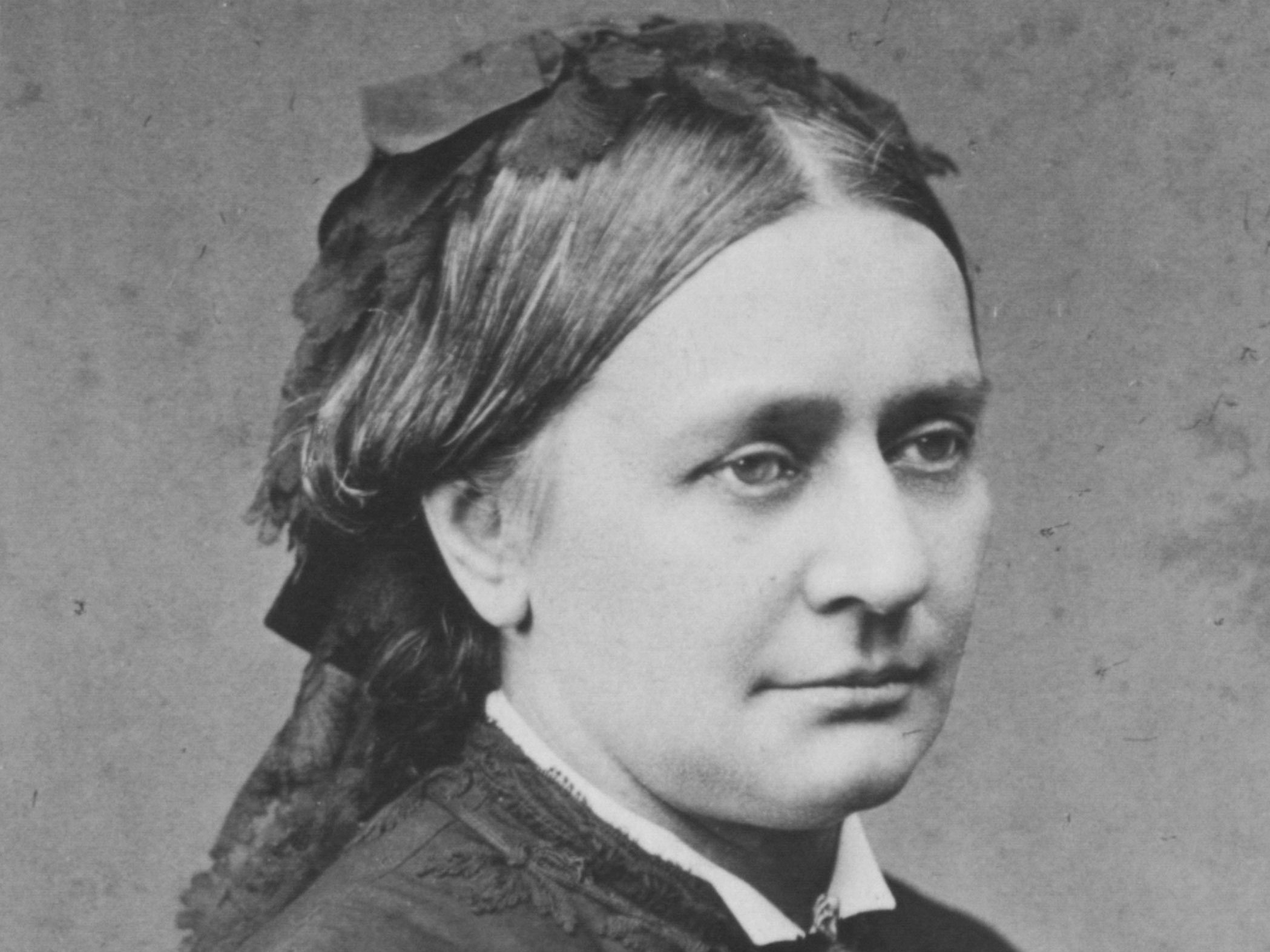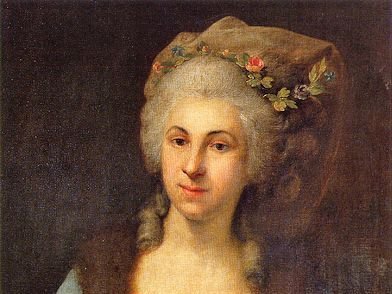- History

For Robert Schumann, the early years of his marriage to Clara Wieck were a time of happiness and exuberant creativity. Some of his finest works date from this period and include his Fourth Symphony. But the beginning and end of this love were overshadowed by conflicts, initially with Clara’s father, later with Robert’s failing health. This week Kirill Petrenko conducts three sold-out concerts of Schumann's Fourth.
When the couple first met on 31 March 1828, Clara was still a child. She had just turned eight and a half and was preparing to appear in public for the first time as a pianist, a recital that took place six months later in the Leipzig Gewandhaus. Robert was nine years older and had just arrived in Leipzig to study law but soon began to have piano lessons with Clara’s father, Friedrich Wieck, who sold pianos and ran a lending library. Even though he had no musical training, he was also in demand as a teacher. Robert then spent two semesters in Heidelberg, continuing his legal studies, but avoided attending lectures with the same determination that he had demonstrated in Leipzig. On his return to Leipzig he continued his piano lessons with Wieck.
Ever since his childhood he had seen his life reflected in literature and now he proceeded to invent a series of fantasy figures who represented Wieck (Master Raro), Clara (Zilia) and himself. In his case he needed two literary characters to encompass the two sides of his nature: the ebullient Florestan and the profoundly thoughtful Eusebius. These three figures were shortly joined by a fourth one, Charitas, who represented Christel, a female figure who embodied Schumann’s less highbrow interests. It was presumably at this time that he caught syphilis, the consequences of which were to prove so catastrophic only a decade later.
While Clara was growing up, touring with her father and becoming a European celebrity, Schumann was making a name for himself thanks to his twofold gifts: not only was he active as a composer, initially solely for the piano, he was also busy founding, editing and contributing to the Neue Zeitschrift für Musik, a periodical that still exists today. In 1833 he wrote a set of ten Impromptus op. 5 on a romance by Clara Wieck, perhaps already suggesting that he felt drawn to a young woman who – in the words of the German musicologist Arnfried Edler – was already “precociously mature as both a woman and as an artist”, yet by the summer of 1834 he had become engaged to Ernestine von Fricken, only for him to end that engagement in January 1836, by which time Robert and Clara had fallen in love, a love that found expression in their decorous meetings and increasingly impassioned correspondence.
It was not long before Wieck realized what was going on. He showed the young man the door, sent Clara off on tour and did everything that he could to keep the lovers apart. For a whole year they were unable to see one another at all. But their love overcame all these obstacles and on 14 August 1837 they agreed – by letter – to become secretly engaged.
Friedrich Wieck publicly accused Schumann of alcoholism, mental instability and a lack of any business sense.
Robert and Clara tried to win Wieck over but their attempts turned into a form of torture as Wieck simply failed to turn up at the court hearings intended to reconcile the two parties. Worse, he publicly accused the young composer of alcoholism, mental instability, a lack of any business sense, egoism and mindless stupidity, even though by this date Schumann had been awarded an honorary doctorate by Leipzig’s Faculty of Philosophy in recognition of his achievements. He was left with no alternative but to take Wieck to court. And since Wieck was unable to adduce any proof in support of his claims, the court ruled in Schumann’s favour and allowed the marriage to go ahead.
Clara and Robert were married in the Parish Church at Schönefeld outside Leipzig on 12 September 1840. This was the year in which Schumann devoted himself to a medium that he had previously regarded with contempt. The outcome of this burst of creativity was some 140 songs, earning this the title of “the year of song” in Schumann’s life. And Schumann went on to write prolifically in other areas that he had previously avoided or not yet mastered, namely, symphonies and chamber works. Clara played a decisive part in this explosive productivity: it was at her insistence that he wrote his Piano Concerto. She also arranged the vocal score of his oratorio Das Paradies und die Peri in 1843 and accompanied the rehearsals on the piano. At the same time he encouraged her to write music of her own: his song cycle Liebesfrühling includes three of her settings.
The couple also kept a “Marriage Diary”, each of them completing a week’s entries before handing over to the other diarist. Its pages record the exuberance of their love, the challenges that they faced, their harmonious relationship as a couple and the notes of discord that they repeatedly had to resolve. They went for walks together on an almost daily basis, and Clara noted that she was becoming increasingly “passionate” in their marriage. These pages also report on the couple’s children, whom Clara brought into the world at regular intervals of eighteen months or less: Marie, Elise, Julie, Emil, Ludwig, Ferdinand, Eugenie and Felix attest to the mutual attraction between Robert and Clara. But so many children were not just a source of joy, they were also a burden, and there is some evidence to support the suggestion that at least one of Clara’s pregnancies was terminated prematurely.
Even while they were engaged, Clara had been worried that marriage might get in the way of her career. Robert was aware of this and in his song cycle Frauenliebe und -leben, the words of which describe the woman’s soul in words that occasionally imply subservience, his music at times provides an almost ironical commentary on this situation. The greatest challenge that the couple had to face lay in the fact that the paths in life that were taken by a highly sensitive composer and by a highly gifted pianist were extremely hard to reconcile with the middle-class expectations of domestic bliss that each of the partners harboured. Schumann regarded motherhood as every woman’s main purpose in life, and in order not to disturb her husband, Clara had to limit her practising to the times when he was not at home.
The paths in life taken by a highly sensitive composer and by a highly gifted pianist were extremely hard to reconcile.
In 1844, after a lengthy break from touring, Clara set off with her husband on a tour that on this occasion took them to St Petersburg and Moscow. She herself was wildly acclaimed, whereas he was regarded as no more than a hanger-on, adding to his depression. On their return to Leipzig, he suffered a nervous breakdown that was presumably the result of both a hereditary predisposition (several other family members suffered from depression) and the effects of his earlier bout of syphilis.
When he was passed over as Mendelssohn’s successor in Leipzig – the post of the Gewandhaus Orchestra’s conductor had fallen vacant when Mendelssohn had resigned – the family moved to Dresden. His opera Genoveva remained stubbornly unsuccessful, but his appointment as director of music in Düsseldorf in 1850 gave him a new lease on life. And yet his illness continued to take its toll and from 1852 onwards he had problems speaking, while also suffering from hallucinations and from a series of epileptic fits. Members of the Düsseldorf Musical Association demanded his resignation, although Clara stuck by him, undaunted.
She must still have hoped that the change to his personality was a temporary one but by now it was far too late. Schumann suspected what was happening and wanted to be hospitalized, only a further bout of depression prevented him from carrying out this plan and during the 1854 Carnival he threw himself into the Rhine from the Schiffbrücke. He was pulled from the icy waters by some fishermen and spent the last two years of his life in a private asylum near Bonn.
In order to support her family, Clara had to resume giving concerts, successfully reviving her earlier career. She was prevented from visiting her husband on the grounds that this would protect them both. Only when he was close to death was she taken to see him, by which point his physical and mental decline was almost complete. None the less, she was convinced that he still recognized her and that he had tried to put his arms round her. He died two days later. She survived him by almost four decades.

Clara Schumann and the Berliner Philharmoniker
Clara Schumann was a composer, a piano teacher and one of the most acclaimed pianists of her day.

Gustav and Alma Mahler
Should she really accept his offer of marriage? At twenty-two, Alma was an extraordinarily beautiful and charismatic woman. Mahler was a social climber from the provinces.

The composer Marianna Martines
Composing child prodigy, harpsichord virtuoso and singer: in 17th century Vienna, her domestic academies were musical hotspots.